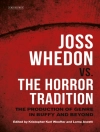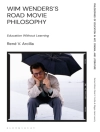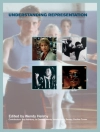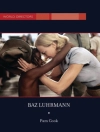A stimulating overview of the intellectual arguments and critical debates involved in the study of British and Irish cinemas
British and Irish film studies have expanded in scope and depth in recent years, prompting a growing number of critical debates on how these cinemas are analysed, contextualized, and understood. A Companion to British and Irish Cinema addresses arguments surrounding film historiography, methods of textual analysis, critical judgments, and the social and economic contexts that are central to the study of these cinemas. Twenty-nine essays from many of the most prominent writers in the field examine how British and Irish cinema have been discussed, the concepts and methods used to interpret and understand British and Irish films, and the defining issues and debates at the heart of British and Irish cinema studies.
Offering a broad scope of commentary, the Companion explores historical, cultural and aesthetic questions that encompass over a century of British and Irish film studies–from the early years of the silent era to the present-day. Divided into five sections, the Companion discusses the social and cultural forces shaping British and Irish cinema during different periods, the contexts in which films are produced, distributed and exhibited, the genres and styles that have been adopted by British and Irish films, issues of representation and identity, and debates on concepts of national cinema at a time when ideas of what constitutes both ‘British’ and ‘Irish’ cinema are under question.
A Companion to British and Irish Cinema is a valuable and timely resource for undergraduate and postgraduate students of film, media, and cultural studies, and for those seeking contemporary commentary on the cinemas of Britain and Ireland.
Cuprins
About the Editor viii
Notes on Contributors ix
Introduction 1
John Hill
Part I Histories: Issues and Debates 5
1 British Silent Cinema 7
Jon Burrows
2 Cinema in Ireland from the 1890s to the 1930s 29
Kevin Rockett
3 British Cinema in the 1930s 49
Lawrence Napper
4 British Cinema and the Second World War 67
James Chapman
5 The 1950s and 1960s 84
Melanie Williams
6 Irish Cinema’s First Wave: Histories and Legacies of the 1970s and the 1980s 106
Maeve Connolly
7 History, Heritage and the National Past in British Cinema of the 1980s and 1990s 127
Geoff Eley
Part II Critical Approaches: Debating Film Texts 141
8 Filming with Words: British Cinema, Literature and Adaptation 143
Christine Geraghty
9 British Film Genres 158
Peter Hutchings
10 British Cinema and Authorship 177
Sheldon Hall
11 Acting and Stardom 201
Jim Leach
12 British and Irish Film Music 217
K. J. Donnelly
13 Irish Cinema and International Screen Culture 234
Martin Mc Loone
14 Vernacular Visions: Ireland and Accented Cinema 260
Luke Gibbons
Part III Critical Approaches: Debating Film Contexts 275
15 British Film Industry and Policy: Issues and Debates 277
Duncan Petrie
16 British Cinema and Technology 298
Sarah Street
17 Irish Film: Industry and Policy 313
Roderick Flynn
18 British Cinema and Television 332
David Rolinson
Part IV Representation and Identity 347
19 Gender, Sexuality, and British Cinema 349
Niall Richardson
20 Space, Place, and Architecture in British Films: The Case of Last Resort (2000) 372
Paul Newland
21 Gender, Sexuality, and Irish Film 386
Debbie Ging
22 Space and Place in Irish Cinema 407
Conn Holohan
23 The Proletariat and British Cinema 423
Paul Dave
24 Race and Ethnicity in British Cinema 443
Sarita Malik
Part V Redefining ‘British’ and ‘Irish’ Cinemas 461
25 The Englishness of British Cinema: Beyond the Valley of the Corn Dollies 463
Julian Petley
26 Trainspotter’s Delight: Issues and Themes in Scottish Film Criticism 490
Jonathan Murray
27 The Cinema Has Two Tongues: The Cinema Cultures of Wales 510
Daryl Perrins
28 Screening Irish-America 532
Ruth Barton
29 Transnational Strategies in British Cinema: The Example of Slumdog Millionaire 545
James F. English
Index 565
Despre autor
John Hill is Professor of Media, Royal Holloway, University of London, UK. He is the author of Sex, Class and Realism: British Cinema 1956-63, British Cinema in the 1980s, Cinema and Northern Ireland: Film, Culture and Politics, and Ken Loach: The Politics of Film and Television as well as being the co-author of Cinema and Ireland.












